From Cao Lanh, tourists follow a beautiful stretch of road on Highway 30 to arrive in Gao Giong Eco-Tourism Area – the lung of the area of Dong Thap Muoi. The green oasis-like area is divided into four areas with over 70km of canals and 20km of self-contained dikes. The mangrove forest in Gao Giong covers 1,700ha, including 250ha of primitive forest that creates a wild beauty.
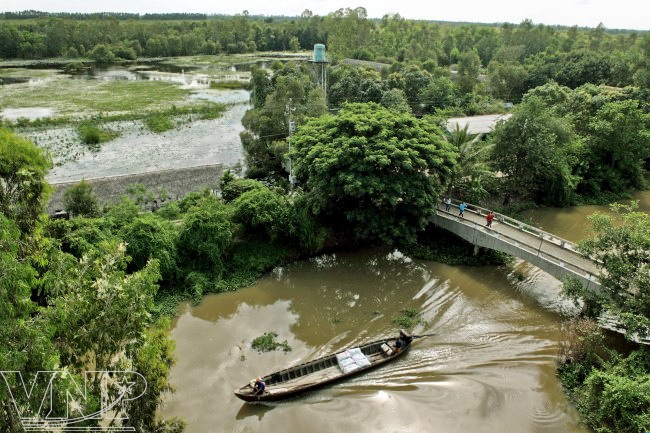
Part of Gao Giong Eco-Tourism Area seen from above. Photo: Le Minh
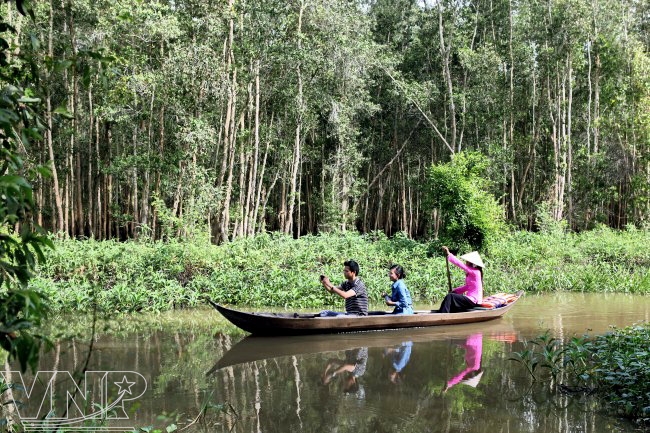
Tourists visit Gao Giong Eco-Tourism Area by a sampan. Photo: Le Minh
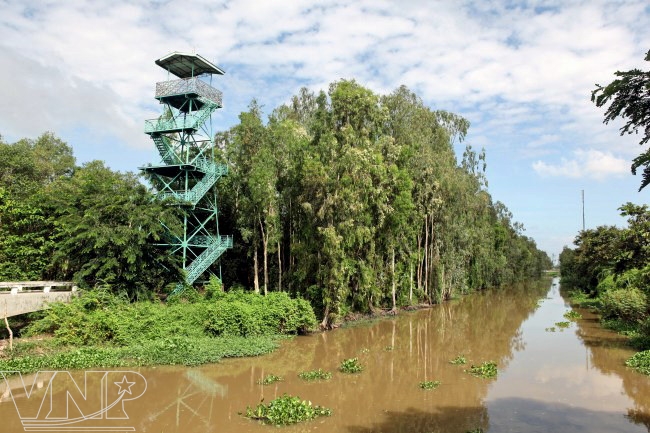
An observatory in Gao Giong Eco-Tourism Area. Photo: Le Minh
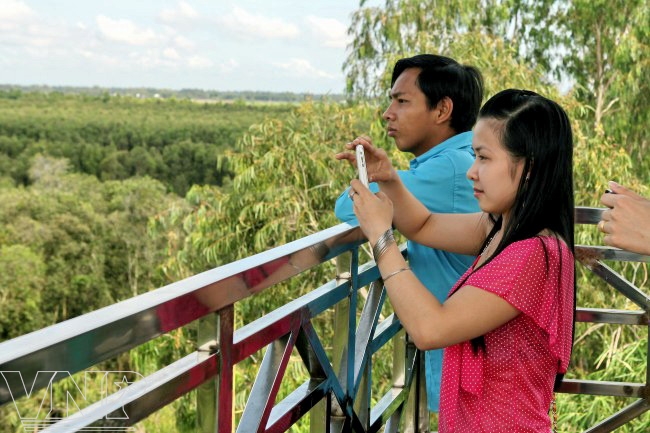
Tourists take beautifull photos from the observatory. Photo: Le Minh
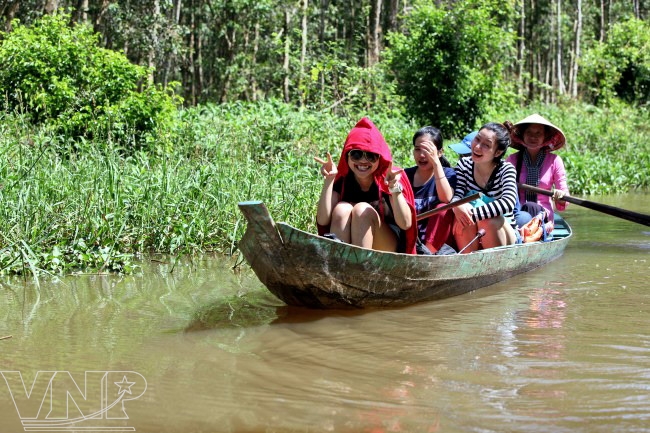
Tourists discover the cajeput forest using a sampan. Photo: Le Minh
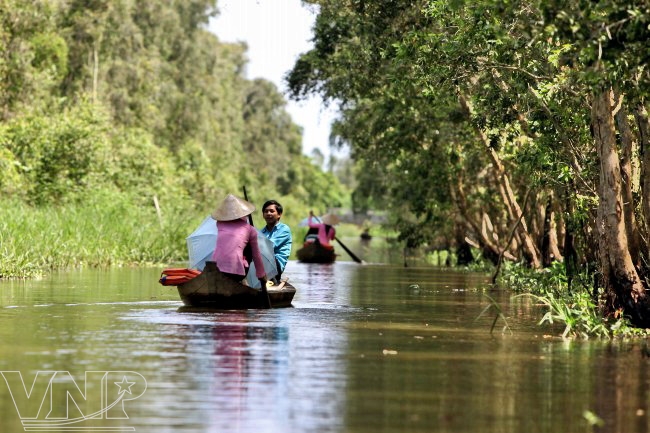
Peaceful scenery in the cajeput forest. Photo: Le Minh
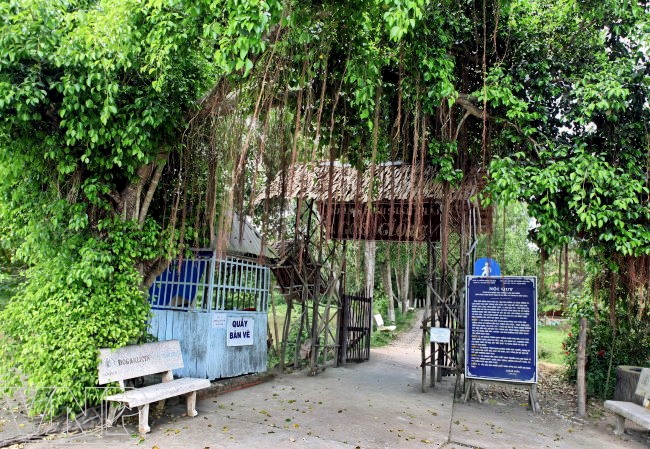
The entrance gate of Gao Giong Eco-Tourism Area. Photo: Le Minh
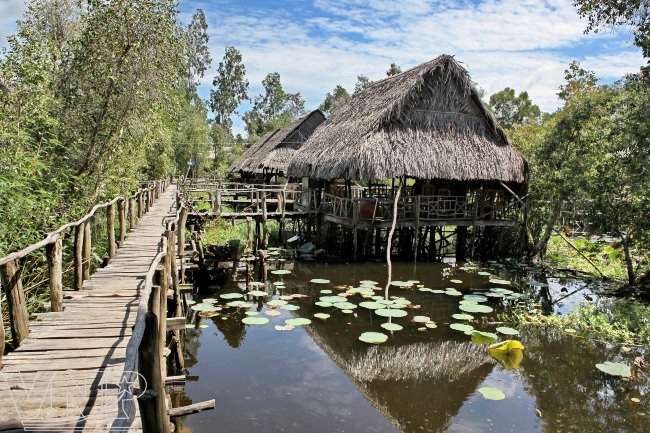
Thatched houses in Gao Giong Eco-Tourism Area.
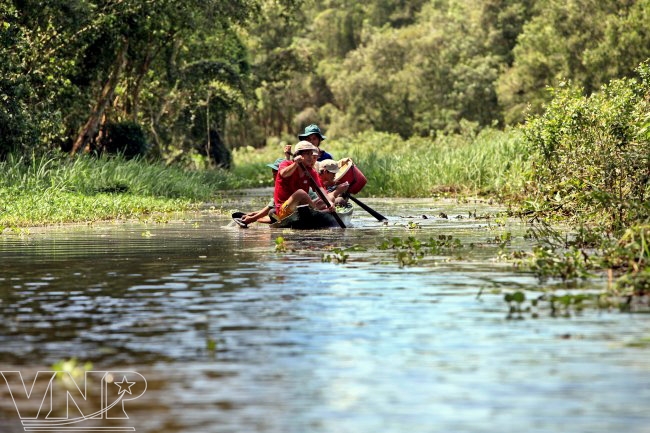
The locals earn their living by catching fish in the eco-tourism area. Photo: Le Minh
Standing on the observatory in the middle of the eco-tourism area, tourists have a birds’-eye-view of an immense area with the distinctive landscape of Dong Thap Muoi that was lively reflected in the famous Vietnamese film, called “Canh Dong Hoang” (Wild Field) by late People’s Artist Hong Sen. The film script was written by writer Nguyen Quang Sang.
On small sampans rowed by gentle women on criss-crossing canals through thick mangrove forests, tourists arrive in a 40ha bird sanctuary, one of the “must-see” destinations in the eco-tourism area.
Visiting the bird sanctuary in the early morning or late afternoon, tourists will be amazed at the animated and noisy scene of thousands of birds hovering above a corner of the forest. The bird sanctuary has now over 200 species of birds, including many listed on the Vietnam and the World Red Books, such as O tac (Otididae), Nhan diem and Giang sen (Mycteria leucocephala) . The area is also the habitat of dozens of water birds, such as Trich mong do, Lesser, whistling ducks, wild ducks, and tens of thousands of white egrets so the area is considered the largest habitat of white egrets in Dong Thap Muoi.
The area is also famous for a plentiful resource of aquatic products, including snakeheads, anabas and That lat(Notopteridae) and especially Rohu from the shallow lake in western Cambodia. Gao Giong is most beautiful in flood season with an immense area covered with the yellow of Dien dien (Sesbania sesban) flower, the red of water-lilies, the violet of Giant Crape-myrtle, the pink of lotus and the green of mangrove forest. All form a romantic colourful natural painting hardly seen anywhere else.
On small sampans rowed by gentle women on criss-crossing canals through thick mangrove forests, tourists arrive in a 40ha bird sanctuary, one of the “must-see” destinations in the eco-tourism area.
Visiting the bird sanctuary in the early morning or late afternoon, tourists will be amazed at the animated and noisy scene of thousands of birds hovering above a corner of the forest. The bird sanctuary has now over 200 species of birds, including many listed on the Vietnam and the World Red Books, such as O tac (Otididae), Nhan diem and Giang sen (Mycteria leucocephala) . The area is also the habitat of dozens of water birds, such as Trich mong do, Lesser, whistling ducks, wild ducks, and tens of thousands of white egrets so the area is considered the largest habitat of white egrets in Dong Thap Muoi.
The area is also famous for a plentiful resource of aquatic products, including snakeheads, anabas and That lat(Notopteridae) and especially Rohu from the shallow lake in western Cambodia. Gao Giong is most beautiful in flood season with an immense area covered with the yellow of Dien dien (Sesbania sesban) flower, the red of water-lilies, the violet of Giant Crape-myrtle, the pink of lotus and the green of mangrove forest. All form a romantic colourful natural painting hardly seen anywhere else.
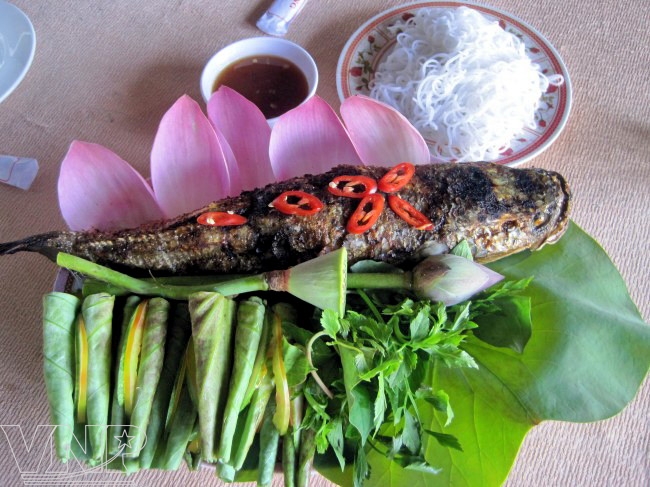
Grilled snakehead, a specailty of Dong Thap Muoi. Photo: File
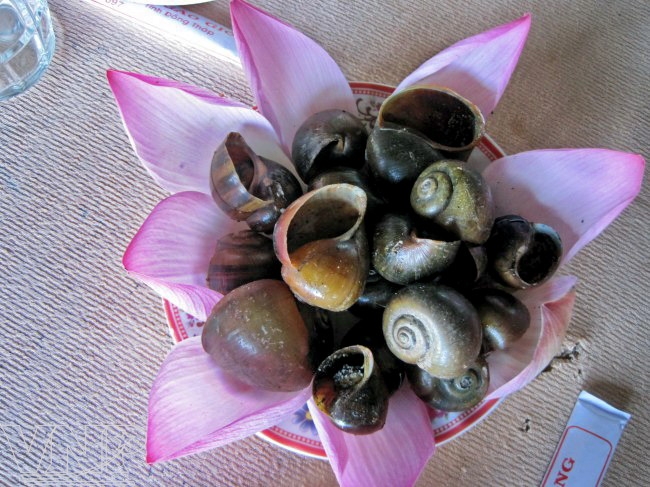
Steamed snails with a speacial taste. Photo: Le Minh
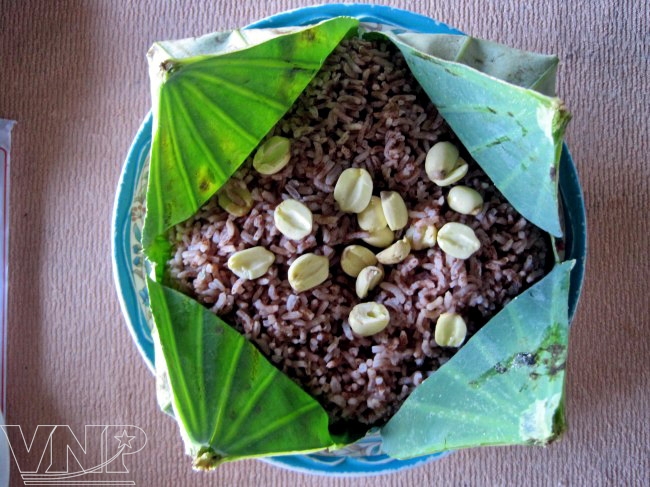
A delicious dish in the area. Photo: File
Visiting the area, tourists will have a chance to learn about the daily life of people in the watery area and enjoy delicious dishes, such as grilled snakehead, sour soup of Dien dien flowers and steamed snails with a special taste.
Established in March 2003, Gao Giong Eco-Tourism Area is now a favourite destination of both domestic and foreign tourists to the western region of South Vietnam.
Established in March 2003, Gao Giong Eco-Tourism Area is now a favourite destination of both domestic and foreign tourists to the western region of South Vietnam.
No comments:
Post a Comment